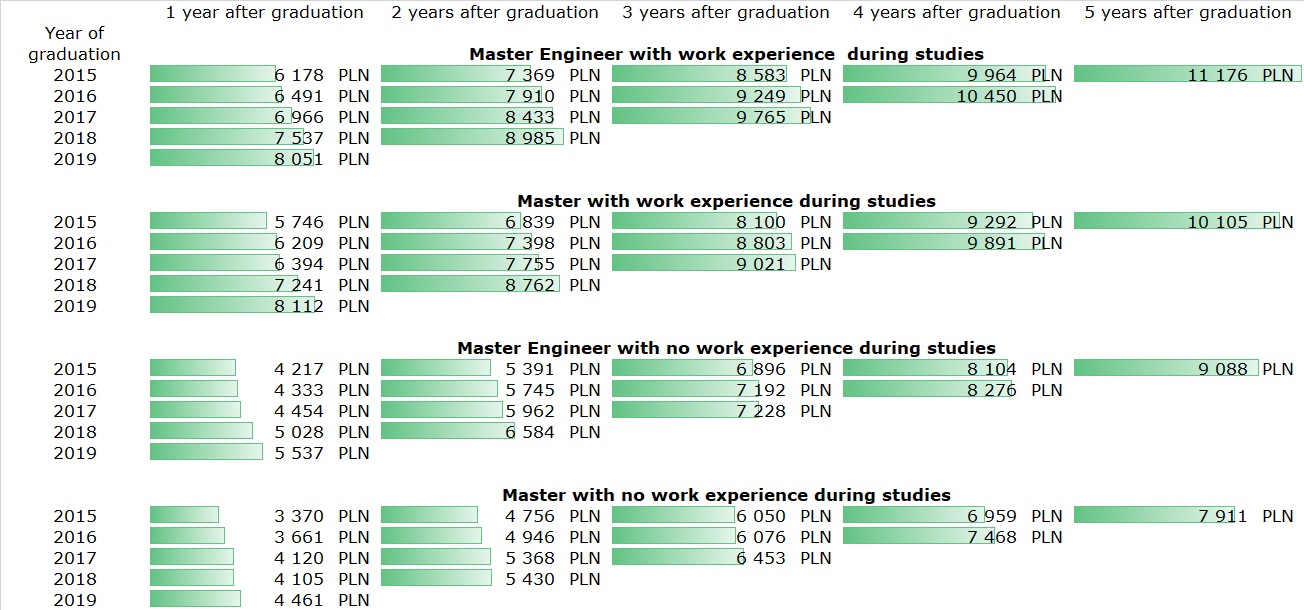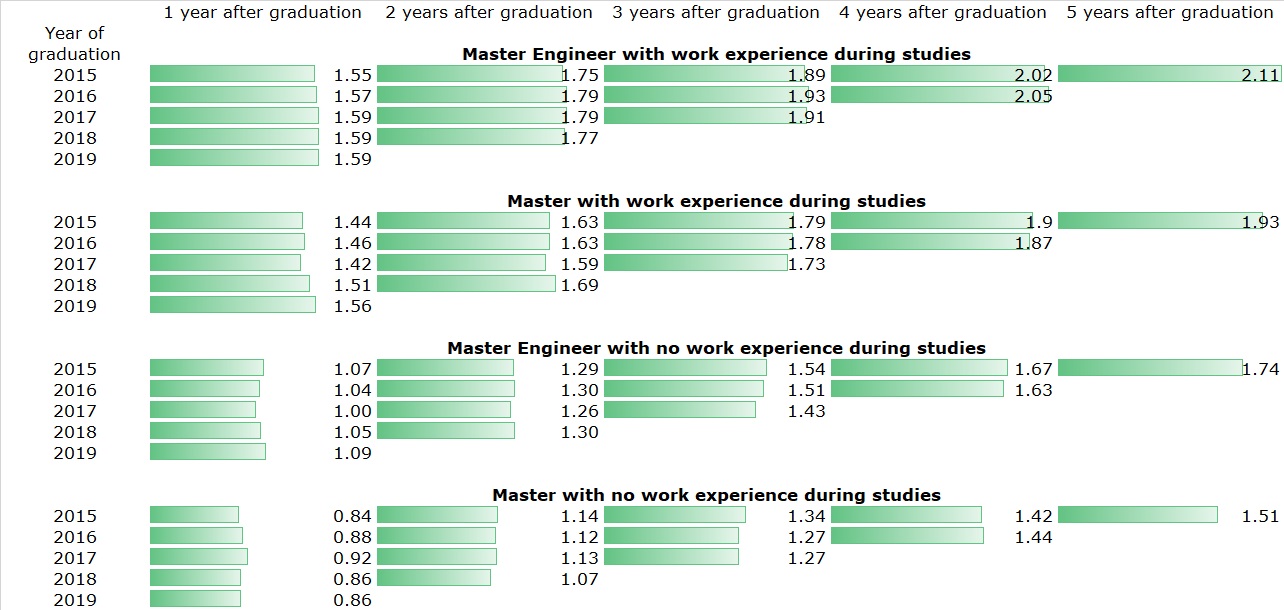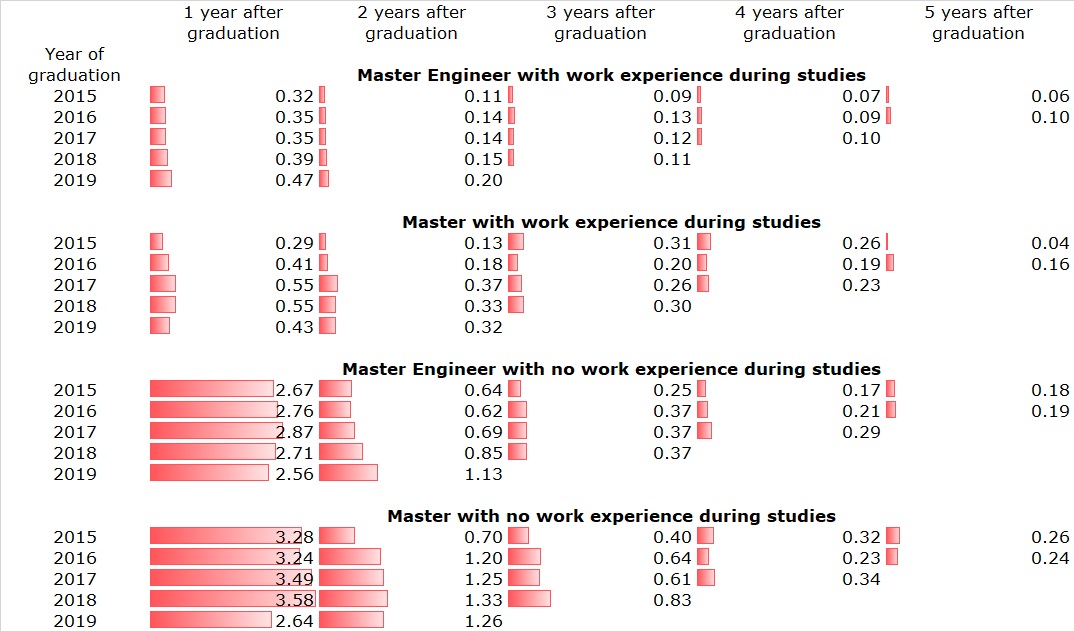
How do computer scientists compare?
Computer scientist – the profession of the future. Many school leavers decide to specialise in the field, expecting that it will guarantee them high salaries. But is it really true? The Polish Graduate Tracking System (ELA) indicates that computer science graduates enjoy success on the labour market; they receive the highest salaries and are rarely affected by unemployment. The data also shows, however, that differences exist between graduates who specialise in the same field — both in terms of earnings and risk of unemployment.
Polish higher education institutions offer a wide variety of learning programmes to young people who are interested in computer science. It is worth mentioning that graduates of second-cycle programmes in technical sciences obtain the degree of Master Engineer, while those who specialise in exact sciences and mathematics are awarded the degree of Master. Computer scientists often commence their professional careers while university students. The experience they gain prior to graduation is later reflected in their circumstances on the labour market.
Master Engineers earn more
The average earnings of computer science graduates are higher among those who gained work experience during their studies and those who majored in technical sciences. This is illustrated in the charts below. Although the nominal earnings of consecutive cohorts are rising, they remain stable when compared with the average. The average remuneration of a computer science graduate is one-and-a-half times higher than that in their place of residence; a ratio that is slightly higher in the case of Masters Engineers.
Average computer science graduate earnings by cohort and by time following graduation
 Source: ELA data
Source: ELA data
In consecutive years after graduation, earnings increase both nominally and relatively. This means that computer scientists' earnings are growing faster than those of all other graduates. Four years after graduation, computer science alumni with the degree of Master Engineer who worked during their studies earn, on average, twice as much as average in their places of residence, while Masters who did not gain any work experience during their studies earn one-and-a-half times the average – an amount comparable to the first year after graduation for a Master Engineer who worked during his/her studies.
Relative Earnings Rate for computer science graduates by cohort and by time following graduation
 Source: ELA data
Source: ELA data
Are computer scientists affected by unemployment?
Yes, computer scientists can become unemployed. The differences in circumstances between specific groups of computer science graduates on the labour market are reflected by the Relative Unemployment Rate. This shows the unemployment risk among graduates in relation to that in their powiats.
Experts at the National Information Processing Institute (OPI PIB) observed that the risk of unemployment is very low in the case of graduates who gained work experience prior to graduation. Once again, the circumstances of Master Engineers are slightly more comfortable. Graduates who did not work during their studies, however, registered much more frequently as unemployed– this problem particularly affects Masters who majored in exact sciences and mathematics. It is worth emphasising that these differences persist up to five years after graduation.
 Source: ELA data
Source: ELA data